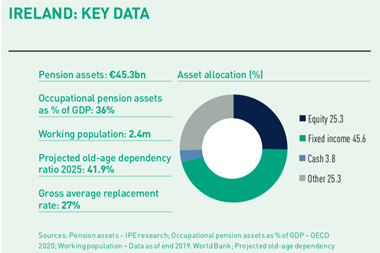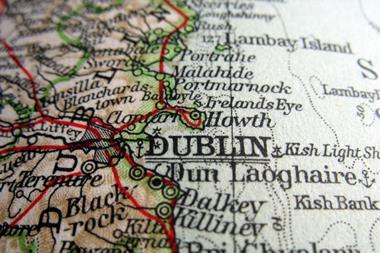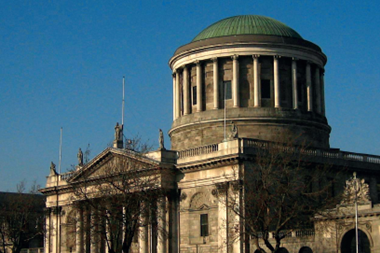Ireland’s pensions regulator has said many master trusts would not currently meet minimum standards ensuing from the transposition of the IORP II Directive, which is still outstanding.
Between January and September 2020, the Pensions Authority carried out an engagement programme with a number of multi-employer arrangements.
In a report setting out the findings of its work, published this week, the regulator said these were disappointing.
“The Authority found issues with every master trust, some of which were significant,” it reported. “Trustees must address these matters if their master trust is to meet the standards expected after the transposition of the Directive.”
Of its engagement findings, the Pensions Authority said that almost every master trust had been set up by a sponsoring organisation, usually a financial institution or a consulting firm, and that their commercial objectives, although legitimate, should not “limit the obligations of trustees to the members of these master trusts and there must be a clear and recognised separation of the roles of trustee and founder”.
“It is clear in many cases that conflicts have not been given any significant consideration”
Further, in many cases, trustees did not seem to understand the breadth of their responsibilities, and many of these master trusts seemed to be unaware of “or unconcerned” about the provisions of the IORP II Directive.
The Pensions Authority also found that, in a number of cases, the rules of the master trust placed “unacceptable constraints on the trustees to act in the members’ interests”, for example by placing investment on members’ money wholly under the control of the sponsoring organisation.
The regulator also reported having uncovered a number of actual and potential conflicts of interest.
“It is clear in many cases that conflicts have not been given any significant consideration,” the Pensions Authority said.
It seemed to say the likelihood of similar issues being in play in many existing single employer schemes was no excuse: “If master trusts are seeking to play an important role in future Irish pensions, their management and structure must be up to date,” it said.
An important part of its work in the period following transposition of the IORP II Directive would be to publish guidance, especially for employers, about the minimum standards they should seek from master trusts before participating in them.
“Many of the master trusts we have examined would currently not meet such standards without addressing our findings,” it said.
Earlier this year, the Pensions Authority’s regulator Brendan Kennedy said the supervisor expected the IORP II Directive to be transposed into domestic law before the end of the year. The deadline for member states to do so was January 2019.
Defined contribution master trusts are expected to be the main providers of automatic enrolment, which the government is working towards rolling out.











